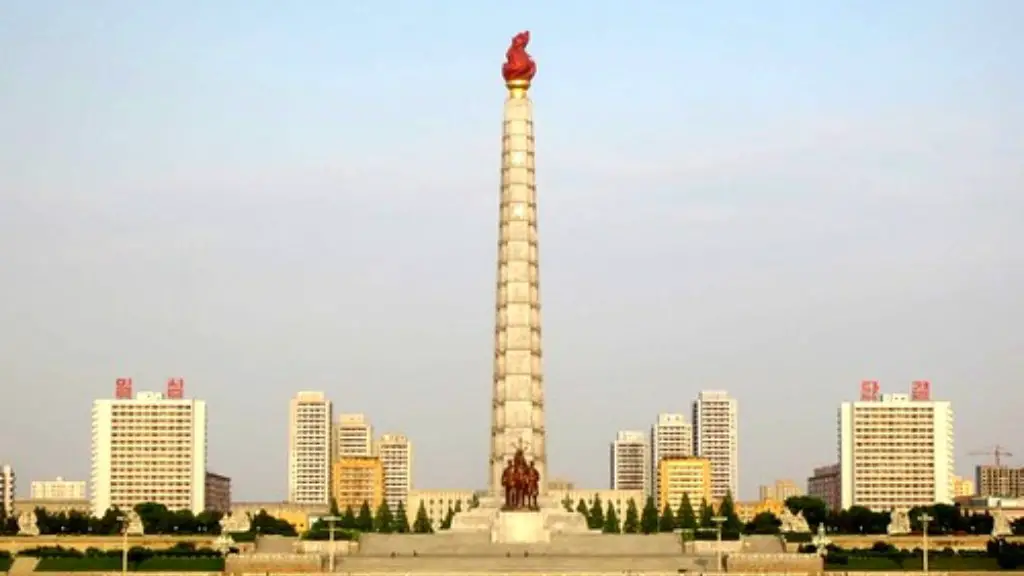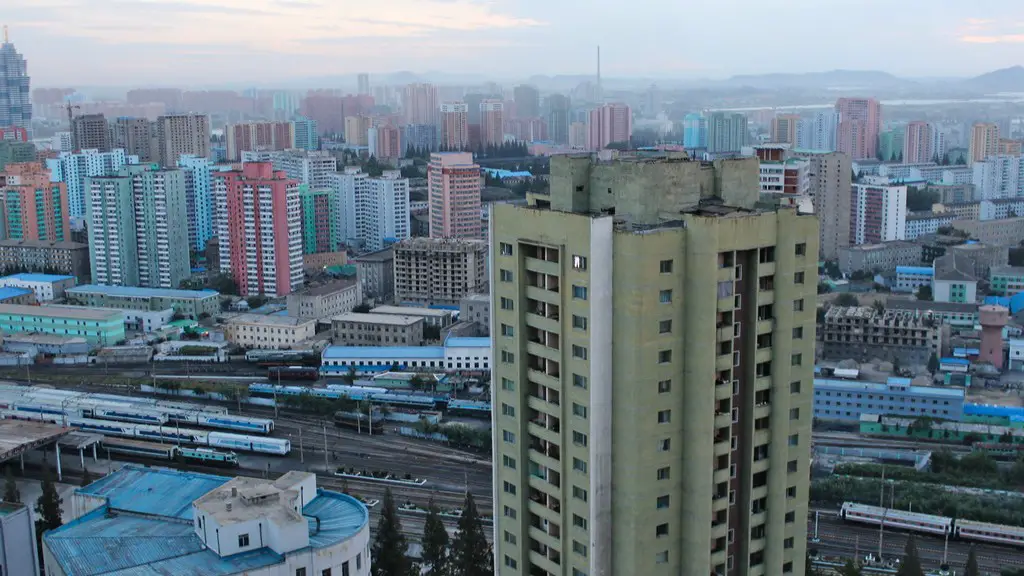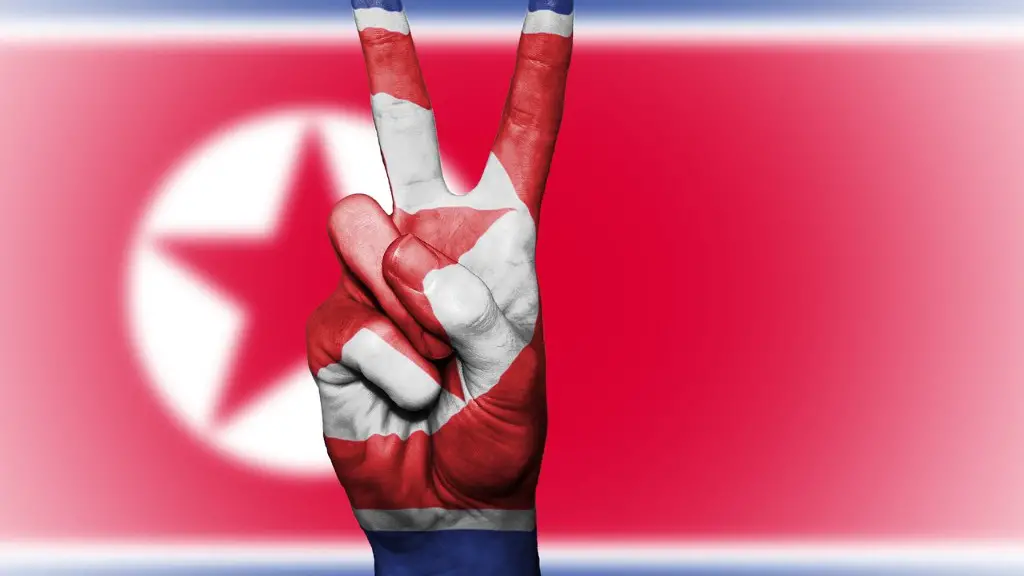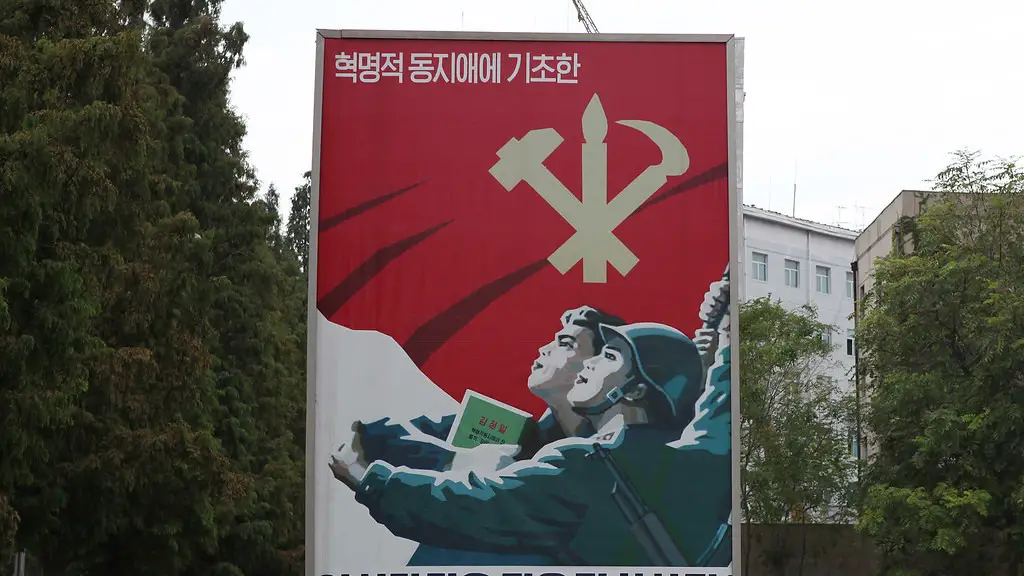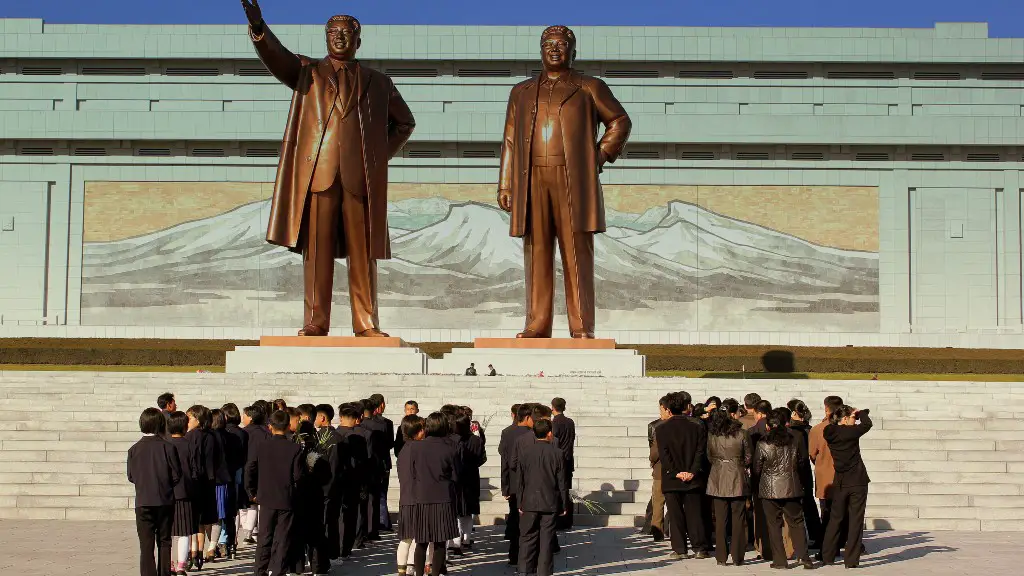North Korea and South Korea are two countries that, while they share much in common, are also separated by major differences. From their governments and political systems, to their cultures and ways of life, the two countries diverge markedly. This article aims to provide an overview of what separates North and South Korea, so that readers can gain a better understanding of the unique relationships and distinctions between the two nations.
First, let us look at the differences in their respective governments and political systems. North Korea is ruled by an authoritarian system, with the Supreme Leader and Workers’ Party at the top of the hierarchy. Meanwhile, South Korea is a democracy and has a direct election system for its executives. Unlike its northern neighbour, South Korea is open to foreign imports and has an economy driven largely by exports and production.
Another key difference between North and South Korea is their attitudes towards religion. North Korea is an avowedly atheist state, with state media reporting government-controlled messages to its citizens. On the other hand, South Korea is generally open to foreign influence, including the influence of religions such as Christianity and Buddhism.
Also, North and South Korea have two very different cultural identities. North Korean culture is heavily focussed on its leader and the ultimate aim of reunification with the South. South Korea, meanwhile, has embraced modern culture and has become a hub of global culture, thanks to its booming economy. South Korea has seen a influx of visitors in recent years, with many tourists drawn to its Vibrant cities, world class shopping and dining, and historic sites.
A further key difference between North and South Korea is economic. North Korea’s economy is largely still based on agriculture, and its economy is heavily constrained by the state. South Korea, meanwhile, is an economic powerhouse, with its exports and technology industry leading the way. South Korea’s economy is also open to foreign investors and trades widely with countries around the world.
To sum up, North and South Korea may share similar cultural roots, but there are many, important differences between them. Whereas North Korea can be characterised as an isolated, authoritarian state, South Korea is multi-cultural and open to outsiders. They diverge in their religious beliefs, in their approaches to culture and in their economic options, with South Korea firmly on the path to becoming one of the world’s most influential countries.
Advanced Technology
The vast technological gap between North and South Korea is also prominent, with North Korea stuck in the past while South Korea is becoming an unquestioned leader in the field. North Korea is not connected to the internet and has banned many foreign tech products, but there is widespread speculation about its nuclear weapons program. South Korea’s tech industry, on the other hand, is open to foreigners and produces some of the world’s most advanced smartphones and other electronic products. South Korean companies such as Samsung and LG have become household names worldwide.
Another factor making South Korea more technologically advanced than its northern neighbour is the quality of its education system. South Korean students score well above the international average in science, technology and mathematics, and are consistently ranked among the best in the world. This is due in part to the country’s focus on education, with both the government and private companies investing heavily in developing the country’s tech talent.
Furthermore, South Korea has embraced the digital revolution, with its citizens adopting many of the world’s most popular apps such as KakaoTalk, Naver and Seoul. This widespread usage of technology has enabled South Korea to become one of the most connected countries in the world, with internet speeds twice as fast as anywhere else. This in turn has spurred its tech industry forward, making it a major global player.
Overall, South Korea’s focus on technology and investment in its education system has enabled it to become an economic powerhouse and a major player on the world stage. It has embraced the digital revolution, and has a highly developed tech industry, with major companies such as Samsung and LG. These developments have been to the detriment of North Korea, which has remained isolated from the global tech revolution and does not have the same investment in its citizens’ education.
Economic Sanctions
The sanctions imposed on North Korea due to its nuclear weapons program have severely impacted the country’s already stagnating economy. North Korea continues to rely on its agricultural production and other state-controlled industries, and is further hampered by economic sanctions from the US, the UN, and other countries. These sanctions inhibit its ability to access foreign capital and to fund much-needed development projects, making it difficult for the country to progress.
The economic sanctions have also widened the economic gap between North and South Korea. South Korea, meanwhile, is reliant on international trade for its economic growth, and has benefited from foreign investment, technological innovation, and its position as a global leader in the technology sector.
Furthermore, the sanctions imposed on North Korea have severely limited its ability to purchase foreign goods. North Korea’s heavily restricted economy means it is unable to buy essential items such as medical supplies, agricultural inputs and other resources that are necessary for the country’s development.
In short, the economic sanctions imposed on North Korea have had a major negative impact on the country, whilst also widening the gap between North and South Korea. South Korea has been able to embrace modern technology, while North Korea remains stuck in the past with its outdated infrastructure and economy.
Military
A further key difference between North and South Korea is the military. North Korea has a large and active military, with an estimated 700,000 troops. It also has an active nuclear weapons program, and has tested multiple nuclear devices since 2006. South Korea, meanwhile, has a less prominent military and does not have a nuclear weapons program.
The military disparity between the two countries has led to tensions on the peninsula. North Korea has frequently threatened South Korea, with its nuclear weapons program exacerbating the situation. South Korea is currently protected by the US, who has stationed troops in the country to deter any potential aggression from North Korea.
Furthermore, South Korea’s military is also heavily influenced by the US, with the country relying on US-supplied weapons, equipment and training. This has enabled South Korea to maintain a strong and modern military, albeit one that is dwarfed by the North.
Overall, North and South Korea have two very different militaries, with North Korea having a larger and more active force and South Korea reliant on the US for its defence. North Korea’s nuclear weapons program has caused tensions between the two countries, whilst South Korea’s military has been kept in check by US forces.
Cultural Heritage
North Korea and South Korea have unique cultures, with each country having its own set of customs and beliefs. North Korea is a largely homogenous nation, and its citizens are heavily influenced by the teachings of the ruling party and its leader. South Korea, meanwhile, has been open to many foreign influences, such as Christianity and Buddhism, making it more diverse than its northern neighbour.
A further difference between the two countries is their engagement with the outside world. North Korea is closed off, isolating itself from the rest of the world whilst South Korea is seen as open and welcoming to tourists and other outside influences. This openness has enabled South Korea to become a global leader in many fields, such as technology, and has also allowed it to embrace modern culture and fashions.
The cultural heritage of each country is also important to consider. North Korea is heavily focussed on celebrating its own heritage and traditions, whilst South Korea has been much more open to outside influences. This has enabled South Korea to become a culturally diverse and modern nation, whilst North Korea remains an isolated state.
North and South Korea are two very different nations, with many key differences between them. From religion and government, to culture and economic options, the two countries differ significantly. It is clear that North and South Korea have both embraced different directions for their development, with one focussed more on tradition and isolationism, and the other focused on globalisation and progress.
